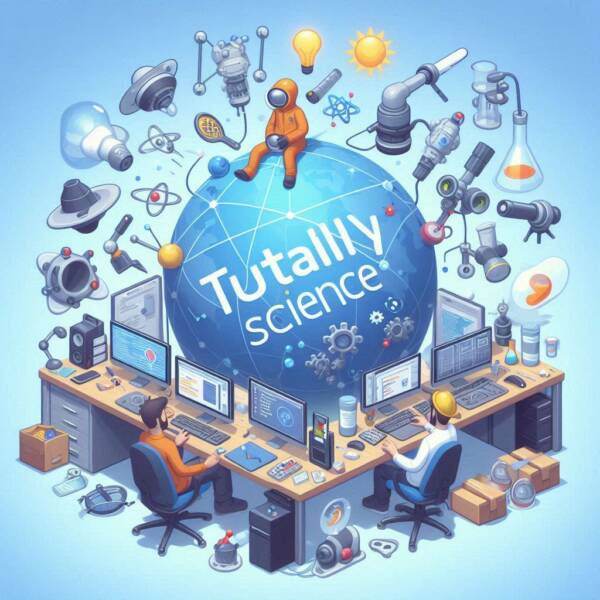Science and technology have always been intertwined, and in today’s digital age, software has become an indispensable tool for researchers and scientists. GitLab, known for its robust version control and collaboration features, has emerged as a surprisingly fit lab software for scientists who want to apply the principles of software development to their research. In this article, we’ll dive into the “totally science gitlab” aspects of GitLab and how it can be leveraged as a science tool.
What Is GitLab and Why Should Scientists Care?
GitLab is a web-based platform for the DevOps lifecycle that offers wiki, issue tracking, and CI/CD pipeline functionality together with a Git repository manager. It is designed to help teams collaborate on coding projects, including tracking changes, managing updates, and facilitating teamwork.
But why should the scientific community take an interest in a tool designed for software development? The answer lies in the nature of scientific research itself. Modern science is collaborative, iterative, and increasingly reliant on code and data. GitLab’s features align well with the needs of scientific projects that require meticulous record-keeping, version control, and collaboration across different disciplines.
Facilitating Collaboration
In science, collaboration is crucial. Multiple researchers often work on the same project, sometimes from different institutions or countries. GitLab’s platform allows for seamless collaboration, with each change tracked and attributed to the appropriate contributor. This transparency is essential for scientific integrity and reproducibility.
Version Control for Scientific Data
Science is an endeavor of constant evolution and refinement. GitLab’s version control system ensures that every iteration of a research project is documented. This is critical for tracking the development of experiments, data analysis, and even research papers.
Automation and Efficiency
Scientists can automate workflows with GitLab’s CI/CD pipeline, which can be particularly useful for repetitive tasks such as data analysis and testing. Automation lowers the possibility of human error while simultaneously saving time.
GitLab’s Core Features Applied to Science
Let’s break down how GitLab’s core features can specifically benefit scientific endeavors.
Issue Tracking and Project Management
Scientific projects often have multiple components, from data collection to analysis, and writing up results. GitLab’s issue tracking system allows teams to manage tasks, set deadlines, and discuss issues all in one place. This organizational tool can help keep projects on track and ensure that nothing falls through the cracks.
Wikis for Documentation
Good documentation is a keystone of good science. GitLab’s integrated wiki functionality provides a space for scientists to document their methodologies, experiment setups, and any relevant information that might be necessary for replication or further study.
Continuous Integration and Deployment (CI/CD)
In science, experiments often need to be run multiple times under varying conditions to validate results. GitLab’s CI/CD pipelines can automate the execution of scripts and analysis, ensuring that each run is performed consistently. This not only standardizes the process but also allows for rapid iteration and testing.
Snippets for Code Sharing
Sharing snippets of code is common in scientific programming when building on existing methods or troubleshooting. Gitlab’s snippets feature enables quick sharing of code blocks within a team or publicly, promoting collaboration and knowledge sharing.
Totally Science GitLab: Real-World Applications
The term “totally science GitLab” might evoke the idea of GitLab being used in purely scientific contexts. Here’s how researchers are applying GitLab’s tools in the real world.
Reproducible Research
One of the key issues in science today is the reproducibility crisis, where other scientists struggle to replicate the results of published studies. GitLab helps address this by providing a platform where all aspects of the research – from data, code, environmental settings, to the final results – can be versioned and shared.
Collaborative Paper Writing
Writing scientific papers is a collaborative process. With GitLab, multiple authors can work on a document simultaneously, track changes, and revert to previous versions if necessary. This process mirrors collaborative coding practices and can greatly streamline the writing and review process.
Data Analysis Workflows
Data-intensive fields like genomics and climate science generate massive amounts of data that require complex analysis workflows. GitLab can manage these workflows, automate data processing tasks, and ensure that analyses are repeatable and transparent.
Challenges and Considerations
While GitLab has many features that can benefit scientific research, there are challenges to its adoption in the scientific community.
Learning Curve
Scientists may be experts in their field but not necessarily in version control or CI/CD pipelines. There is a learning curve associated with using GitLab, and researchers may need support and training to make the most of the platform.
Data Security and Compliance
Scientific data often comes with strict privacy and compliance requirements. GitLab installations need to be configured to meet these standards, which can be a complex process depending on the nature of the data.
Getting Started with GitLab for Science
For scientists interested in integrating GitLab into their workflow, here are some steps to get started.
Step 1: Set Up a GitLab Account
Creating a GitLab account is the first step. There are options for cloud-based services or self-hosted installations for those with specific privacy requirements.
Step 2: Learn the Basics
Before diving in, it’s important to understand the fundamentals of Git and version control. There are many resources available, including GitLab’s own documentation and community forums.
Step 3: Begin with a Pilot Project
Start small by using GitLab for a single aspect of the research, such as managing the writing of a paper or sharing code. Expand usage as comfort with the platform grows.
Step 4: Leverage Community Support
The GitLab community is active and can provide support, tips, and advice on best practices. Engaging with the community can help smooth the learning curve.
Conclusion
In the quest for discovery, scientists are turning to tools like GitLab to manage their projects with the same precision they apply to their research. With its robust features for collaboration, version control, and automation, GitLab is proving to be a valuable ally in the pursuit of knowledge. By embracing these technologies, the scientific community can enhance the reproducibility, efficiency, and collective growth of their work, ushering in a new era of “totally science” research practices.
Read Also:




